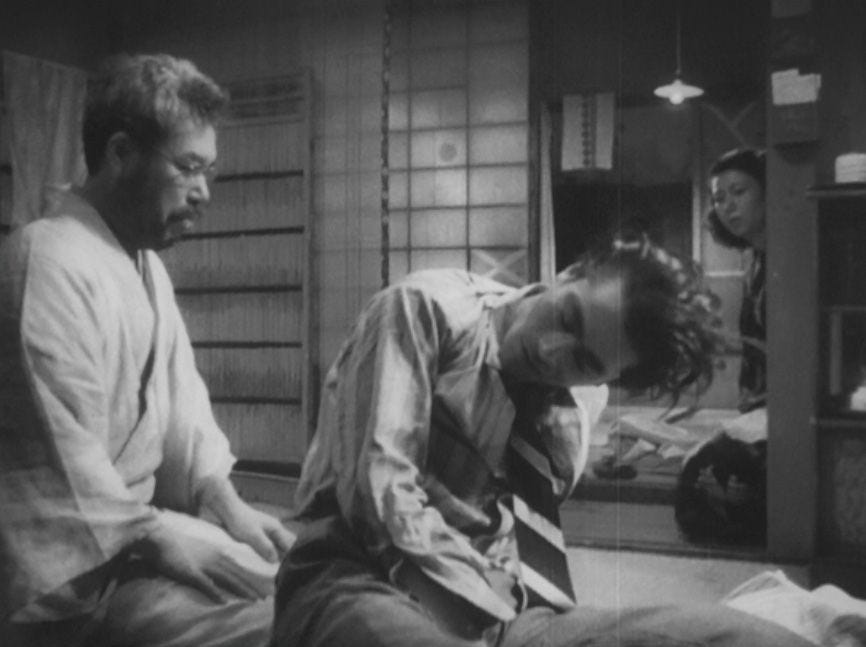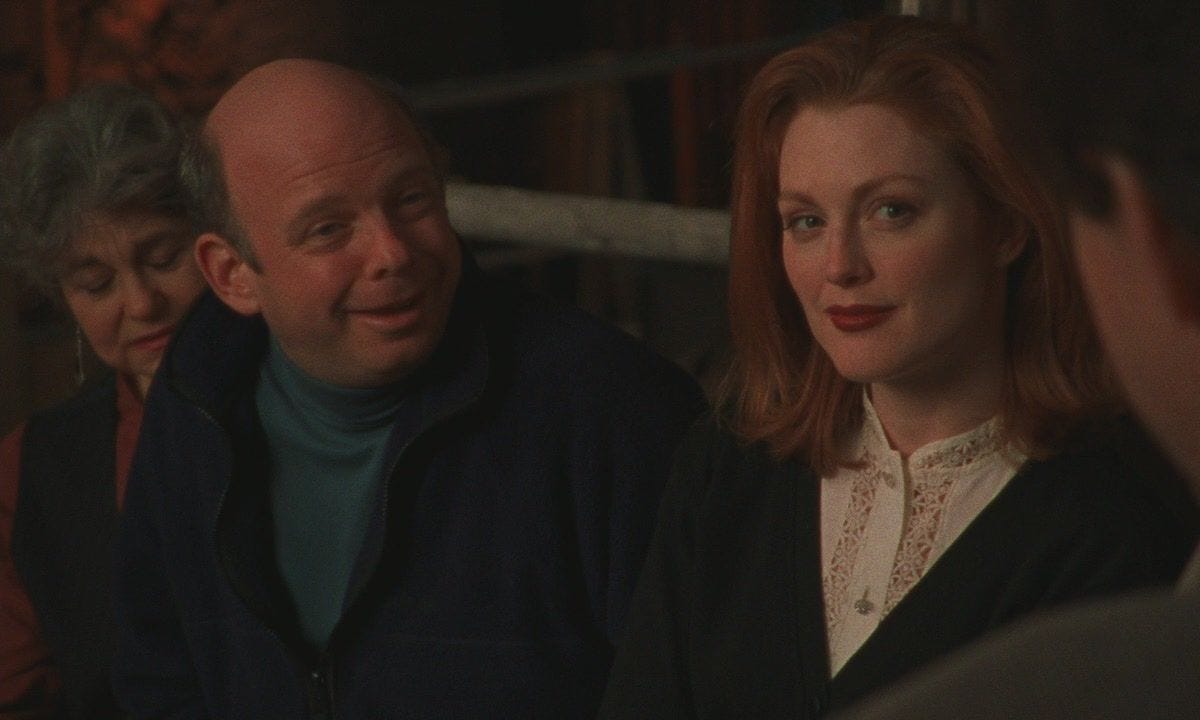It’s been a while since I’ve done a non-OTH related blog post, and I’ve wanted to have the opportunity to write about another interest for a while. With Netflix ending its rental service on the 29th, the company’s original purpose coming to a close after 25 years, I thought that maybe I should take this opportunity to talk about the last films I’ll use this incredible service before it’s too late.
I remember being excited when my local Blockbuster closed, a year or two before the franchise went bankrupt, since this meant that my family could sign up for Netflix instead. Their rental service was very appealing to a younger movie fan, ready to explore as many different genres and artists as I could and had gone through most of Blockbuster’s limited options. This was just as the company was experimenting with streaming, putting a couple of handfuls of films available to watch online, but hadn’t started making original content yet. Thanks to their rental service, I’ve seen countless films, ranging from classics of all sorts to recent hits, and I’ve never stopped renting or adding to my queue.
Unfortunately, many consider physical media to be a thing of the past, as you can find everything online. Sure, but not legally or easily, and digital footprints are more likely to be erased than you’d think. There’s plenty of reasons to hold onto your physical copies of your favorite movies and TV shows even if they’re available to stream. Netflix’s rental service has the option to see thousands of films not available for streaming or even for rental digitally. That’s sad.
So I’m speeding up my queue and have even made a second account, where I can have three films out at a time in addition to the two my family’s account offers, so I can see as many different titles as I can before it’s too late. On top of that, at the end of their service, both accounts should allow me to receive up to 10 additional titles from my queue that can be returned at any time. But let’s not get ahead of ourselves, and instead allow me the chance to talk about some of the films I crossed off last week, ranging from gaps in favorite directors to more recent titles.
Drunken Angel (1948)
My local Blockbuster’s foreign film collection tended to be pretty slight, only having some more recent hits with a short supply of classics. Thankfully, one such classic was Akira Kurosawa’s Seven Samurai, which remains a favorite to me, an untouchable masterpiece that is among the few films I feel the need to revisit annually. Thanks to other assets like Turner Classic Movies, Criterion, and yes, Netflix, I’ve been able to see more of Kurosawa’s films, yet his earliest titles continue to elude me for varying reasons. I decided to push Drunken Angel up, given that it’s a favorite of Wes Anderson, another director I admire (Asteroid City is one of my favorites of the year, btw, his best since Grand Budapest Hotel), and I’m glad I did.
Surprisingly, this is Kurosawa’s first collaboration with his muse, Toshiro Mifune, who plays a cruel yakuza member who is diagnosed with tuberculosis and is encouraged to stop drinking by his doctor, Sanada (the titular drunken angel, who has his own drinking problem). Mifune’s Matsunaga initially listens to reason and the two become unlikely friends, but things change when an old friend has Marsunaga return to his old ways. Right away, Mifune’s timeless, barrier-proof charm is apparent, as is his ease being in front of Kurosawa’s camera, who is able to weave a universal story while remaining an introspective look at post-WWII Japan. Part of what makes Kurosawa’s work appeal well beyond his Japanese heritage is his western influences, most notably his love of Dostoevsky (he eventually adapted The Idiot), Shakespeare (Throne of Blood and Ran, adapting Macbeth and King Lear retrospectively, are among his most acclaimed works) and John Ford’s westerns (which explains why his works were so successfully adapted into westerns like The Magnificent Seven and A Fistful of Dollars), and that’s true here, combining his eastern sense of storytelling and structure with western filmmaking techniques. I really enjoyed getting back into his mindset and hope to dig into some of his other work if I have the time. I actually haven’t seen his take on The Idiot, for instance.
Vanya on 42nd Street (1994)
An early favorite title that I saw from Netflix was Louis Malle’s My Dinner with Andre, which focuses almost entirely on a transformative evening shared between André Gregory and Wallace Shawn. The film resonated greatly with me, as I appreciate both characters and their conflicting personalities allowing for an unforgettable exchange of words between the two. I appreciate strong dialogue and can really go for a memorable monologue, but for the most part, strong formal elements are what’s most important in film. Still, despite the playl-ike structure, My Dinner with Andre plays against type, and has the content be the form as Malle’s camera allows for the pace to be as breakthrough as possible.
Malle was a surprising choice to handle Gregory and Shawn’s screenplay, but made for an inspired pick. That’s why I’ve been hoping to make it to their next collaboration, which is this readthrough of Uncle Vanya. Here, Gregory plays himself as the director as he has the cast rehearse Chekov’s legendary production (translated by David Mamet), while Shawn reads through the titular role as they get their lines down in the New Amsterdam Theatre, the legendary (and at the time closed) Broadway theater. Shawn is accompanied by plenty of Broadway staples, as well as Julianne Moore as Yelena, Vanya’s young second wife. Was Moore added as a possible marquee name? This was only a year after she proved she was a natural redhead in Short Cuts, so it’s possible. Everyone gives their best here and while the film does feel more stagey than My Dinner with Andre, this appears to be by design, as Malle and Gregory want Chekov’s writing to shine. I think it works splendidly in that regard, enough so that I had a different Malle film arrive shortly after.
All About My Mother (1999)
Pedro Almodóvar is a fairly big gap of mine, a big name whose work I can count on one hand as seen, despite his stature in Spanish and LGBT filmmaking, as well as his eye for talent, developing star-making turns for Antonio Banderas and Penélope Cruz. And he’s still making good work, too!
This is one of his bigger titles, winning the Academy Award for Best International Feature, in which Manuela, a nurse in Madrid, loses her son after getting hit by a car. She goes to Barcelona to find his father, who is in actuality a transwoman named Lola. Neither she nor their son knew about the other’s identity. On the way, Manuela meets up with another transwoman friend, Agrado and becomes acquainted with her friend group, including Cruz playing a pregnant woman, on the way to meet up with Lola. Besides openly and warmly, if in a somewhat dated manner, embracing trans people, the film addresses heavy and relatable issues such as HIV/AIDS and Alzheimer’s in an honest manner while keeping an admirable sense of humor to it. I quite liked it, but I can see why this would turn off certain viewers. That said, I really want to get into his earlier, erotic work with Banderas, now.
The Guest (2014)
What can I say, I like a good thriller? And I had fun with this one!
In this feature, David Collins returns from his service in Afghanistan to visit the grieving family of his best friend in his troop, Caleb Peterson. Caleb’s parents, as well as his younger siblings, all take to David right away, as he proves to be quite charismatic. He’s resourceful towards both parents, a good listener to sister Anna, and helps brother Luke avoid a much harsher sentence after defending himself from a bully in a subplot that will feel all too familiar to many a victim, especially with a school system which, more often than not, supports the oppressor over the oppressed.
But there’s something wrong with David, and Anna is the first to notice. We soon learn why she feels that way with some revealing flashbacks, which are followed by tense action from David himself. You can probably guess where this is going, but that’s part of the charm.
Dan Stevens is probably best known for the live-action Beauty and the Beast, but I was impressed with his work in the X-Men series Legion, and this is another example of why he deserves to be a bigger name. He makes David feel exactly as likable as you’d expect the family to find him, while giving off an almost robotic quality when his true colors show. There’s a bit during his final confrontation that gave me chills. But if there’s a weak link in the film, I think it would come down to Maika Monroe, who I find to be among the blandest actresses I can think of, single-handedly removing It Follows, a horror flick that I otherwise quite like, from classic status. She just doesn’t have the chops despite a significant role. Besides her, however, I would recommend this if you want something exciting to turn on after a hectic day of work.






